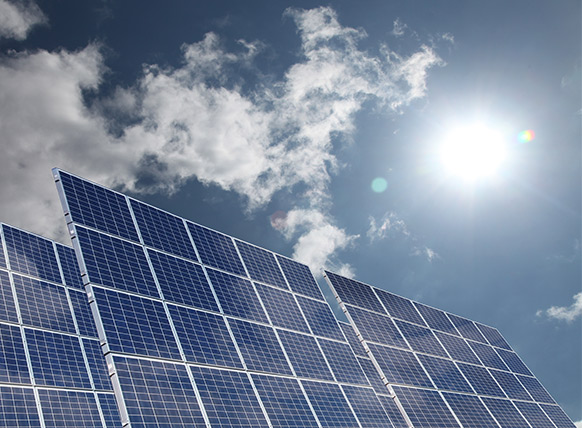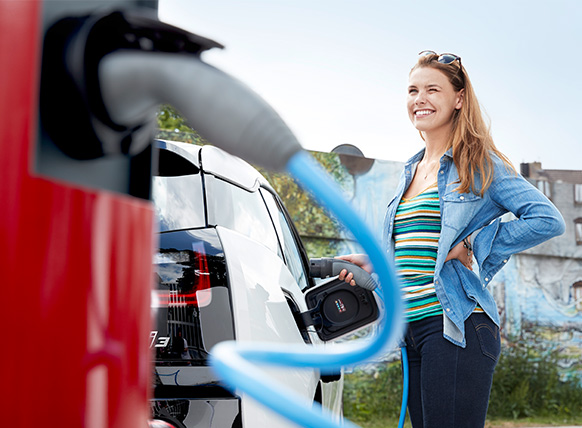

What can I do to help reduce air pollution?
What can I do to help reduce air pollution?
Air pollution is the biggest environmental threat to health in the UK1. Vehicles on the road, factories, farms, smoking and burning fuels all pollute the air.
But there are things all of us can do to help reduce air pollution and make the air we breathe cleaner. From walking and cycling instead of driving petrol and diesel cars, to composting food waste, here are 10 simple steps we can all take — at home, on the road and in our communities.
How to help reduce air pollution at home
1. Compost organic waste
Sending waste to landfill can increase both air pollution and greenhouse gas emissions. By composting your garden waste and any food waste, you can turn it into a nourishing meal for your vegetable patch or garden instead.


2. Keep an eye on your energy use
Using less energy can cut your air pollution footprint. Consider installing sustainable products, energy efficient appliances and light bulbs, insulating your home and upgrading your windows. And save energy by switching off lights when they're not in use, filling the kettle with just what you need, and only running the washing machine and dishwasher when you have a full load.
Installing a smart meter can help you track energy use and reduce energy waste, while servicing your boiler will help it to run as efficiently as possible and can cut your energy use and reduce carbon emissions too.
3. Choose 100% renewable electricity
Fossil fuels are big contributors to air pollution, generating both harmful pollutants and greenhouse gases. Choose to power your home with 100% renewable electricity - we provide this at no extra cost2, and you're opting to help clear the air.


4. Go solar
Generating electricity from solar panels doesn’t produce greenhouse gases or air pollution, making them a clean and sustainable way to power your home. If you install solar panels and generate more electricity than you need, you can sell any excess electricity back to the UK Grid with our Smart Export Guarantee – meaning you can breathe easier in every way.
How to help reduce air pollution on the road
5. Keep your vehicle serviced
Keep your vehicle regularly serviced as cars and vans pollute the air with gases and particles from fuel, plus particles from tyres, brake pads, road surfaces and more. But regularly serviced vehicles cause less air pollution than poorly maintained vehicles3. Diesel vehicles can give off even more particles than petrol vehicles, so be sure your diesel particulate filter is emptied regularly4.


6. Upgrade your car
If you can, consider upgrading your car to a more environmentally friendly model. Electric vehicle engines emit far less harmful carbon emissions and air pollutants5 than fossil-fuelled cars and produce no exhaust emissions when driven3. So switching to a hybrid or electric car can help reduce your impact on local air pollution, contribute towards green living and creating a more sustainable community while keeping the air around you cleaner.
What’s more, the UK Government has recently announced that petrol and diesel cars and vans won’t be sold from 2030 onwards. And you could even take advantage of exclusive energy tariffs for electric and hybrid vehicle owners such as our E.ON Charge tariff, which comes with a reward of 850 free miles. So if you’re considering buying a new car, now could be the perfect time to choose electric.
If you can't go electric or hybrid, look at the emissions data for the car you're planning to buy, particularly its nitrogen dioxide and particulate emissions to understand what its impact would be on your local air pollution and carbon footprint.


7. Increase your step count
Upping your activity level isn't just great for your overall health, it's good for the planet too. Walking or cycling rather than taking the car, particularly for short trips, helps reduce emissions of dirty particles, nitrogen dioxide and greenhouse gases alike. For longer journeys, consider using public transport or sharing a car.
And consider travelling by train for your next holiday rather than flying, which is the most environmentally damaging method of transport.
How to help reduce air pollution in your community
8. Shop consciously
Same day online delivery can be a temptingly easy way to shop — but it leads to air pollution from cars and motorbikes, not to mention mountains of packaging waste6. Most of us buy more than we need but shopping less frequently and more locally can help reduce the air pollution caused by factories and transport alike.


9. Encourage future generations
Kids nowadays are environmentally aware, making the school gates the ideal place to help cut air pollution. Instead of driving to school, walk or cycle if you live close enough. And consider lobbying for “no idling" zones around the gates. And encourage your children’s school to manage waste sustainably: vegetable gardens can be as much fun at school as they are at home.
10. Check your local air quality forecast
In the same way that we all check the weather forecast before heading out for the day, we believe we should all check the air quality forecast too. We’ve worked with weather data provider DTN to make this information more readily available by helping national and regional media include air quality information7 in their weather forecasts with our ‘Change the Weather’ service.
At E.ON we’re committed to helping to clear the air and reduce air pollution by offering 100% renewable electricity2, providing smart meters and district heating, and setting up charging points for electric vehicles.
Learn more about renewable energy, living sustainably, or discover seven great ways to bring renewable energy into your home.
1. Gov.uk: Public Health England publishes air pollution evidence review
2. Electricity backed by 100% renewable sources. E.ON's renewable generation assets, agreements with UK wind generators and the purchase of renewable electricity certificates. The electricity supplied to your home comes from the National Grid and DNOs. eonenergy.com/renewable
3. The AA: What's being done about air pollution?
4. The AA: DPFs can be problematic
5. Local Government Association: The case for electric vehicles
6. The Guardian: Delivery disaster: the hidden environmental cost of your online shopping
7. The DEFRA Daily Air Quality Index (DAQI) tells you about levels of air pollution and provides recommended actions and health advice. For more information, go to http://uk-air.defra.gov.uk/


Our blog
Read our latest blogs to discover how E.ON is leading the energy transition through smart and sustainable solutions.


Sustainable homes
Find out the many ways in which you can create a more sustainable home and reduce your carbon footprint.


Sustainable cities and communities
Find out how we're creating smart, sustainable cities and communities across the world.


How to save energy at home and reduce energy bills
There are many ways that we can save energy at home and with just a few easy tweaks to your routine, you could save energy and lower your energy bills.
